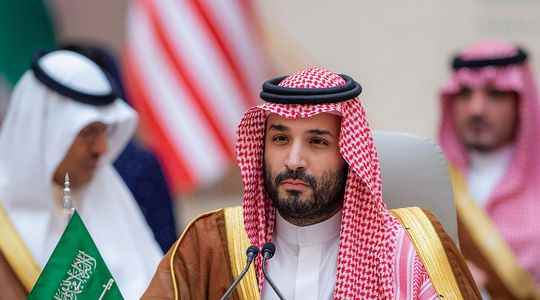This is intelligence shared by Saudi Arabia with the United States. According to the revelations of Wall Street Journal, which quotes Saudi and American officials, Riyadh fears an “imminent attack” by Iran on both the Wahhabi kingdom and Erbil, in Iraq, with the aim of “diverting attention from the national demonstrations which have rocked the country since September” 2022.
In response to the warning, Saudi Arabia, the United States and several other neighboring states would have raised the alert level of their military forces, the officials said. They did not provide further details on the Saudi intelligence.
The White House National Security Council has said it is ready to react if Iran ever carries out an attack. “We are concerned about the threat image and remain in constant contact through military and intelligence channels with the Saudis,” a National Security Council spokesperson said. quoted by Reuters. “We will not hesitate to act in defense of our interests and our partners in the region,” he added.
A Riyadh-backed TV channel popular with Iranians
Iran has been the scene of protests since the death on September 16 of Mahsa Amini, a 22-year-old Iranian Kurd who died three days after she was arrested in Tehran by morality police, who accused her of breaking the dress code. of the Islamic Republic, imposing in particular the wearing of the veil for women. Outrage over his death has sparked the biggest wave of protests since 2019 protests over rising petrol prices in the oil-rich country. According to a new report from the NGO Iran Human Rights (IHR) based in Norway, 176 people have been killed in the repression of the demonstrations since September. And 101 lost their lives in a separate wave of protests in Zahedan, in the province of Sistan-Balochistan (southeast).
Iranian authorities have publicly accused Saudi Arabia, along with the United States and Israel, of being behind the protests rocking the country. As reminded the wall street journalIn October last year, the head of the Revolutionary Guards, General Hossein Salami, publicly called on Saudi Arabia to reduce coverage of protests in Iran by Farsi-language satellite news channels, including Iran International. , a Saudi-backed satellite TV channel based in London, popular with many Iranians.
Iran International has used social media and its broadcasts to show videos of Iranian protests and the police crackdown that has taken place since the unrest began. “This is our last warning, because you are interfering in our internal affairs through these media,” Hossein Salami said in comments reported by state media. “You are involved in this case and know that you are vulnerable,” he said.
Iranian Supreme Leader Ayatollah Ali Khamenei on Wednesday accused the United States of seeking to manipulate Iranian public opinion by supporting the protest movement in Iran. “In the complex war of the past few weeks, the United States, the Zionist regime (Editor’s note: Israel), certain insidious powers in Europe and certain groups have deployed all their means to strike the Iranian nation”, declared Ayatollah Khamenei .
Deadly Iranian strikes in Iraq
Iran has attacked northern Iraq with dozens of ballistic missiles and armed drones since late September 2022, one of which was shot down by a US warplane as it headed towards the city of Erbil, where US troops are based. Tehran has publicly accused Iranian Kurdish opposition armed groups – referred to as “terrorists” by Iran – based in Erbil of fomenting unrest in Iran. By September 27, at least 14 people had been killed and 58 injured, including women and children, in Iranian strikes involving missile strikes and drones. Iraqi Kurdistan hosts several Iranian Kurdish opposition groups which historically have waged an armed insurrection against Tehran, although in recent years their activities have been on the decline.
The threat of an Iranian attack on Saudi Arabia also comes as relations between the Biden administration and Riyadh are currently strained due to the Wahhabi kingdom’s recent oil production moves.
OPEC + – the 13 members of the Organization of the Petroleum Exporting Countries (OPEC) led by Saudi Arabia and their 10 partners led by Russia – decided on October 5 to slash its production quotas in order to support crude prices which were falling. This decision has angered US President Joe Biden a few weeks before the crucial midterm legislative elections in the United States for the rest of his term. The US administration has accused Riyadh of playing into Russia’s hands as it seeks to fund its war against Ukraine.
